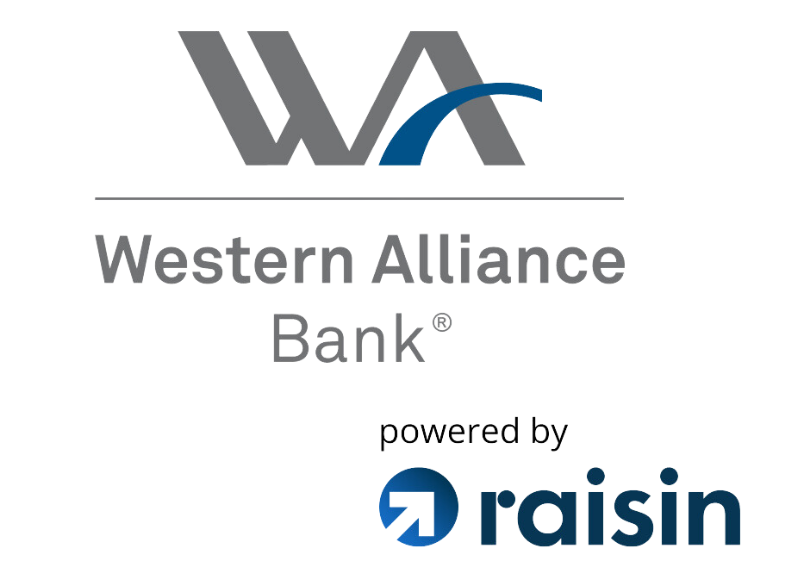Third Federal offers an astonishing array of CD products, with terms as low as seven days to as high as 60 months. Its "Standard" CDs (shown below) don't have noteworthy APYs, but its "Special" CD terms have fairly competitive rates, though you might need to put down a minimum deposit of $50,000 or $100,000 to snag one.
If you're contemplating a Third Federal CD, read on to learn whether they're worth your attention.
Third Federal CD rates for 2025
APY = Annual Percentage Yield

| 3 Mo. APY | 6 Mo. APY | 1 Yr. APY |
|---|---|---|
| 2.00% | 3.00% | 1.50% |
Is a high-yield savings account a better option for you?
A high-interest savings account offers rates competitive with the best CDs accounts, but without having to lock your money away for months or even years at a time. Here are some top-rated high-yield savings account options from our experts.
| Account | APY | Promotion | Next Steps |
|---|---|---|---|

Open Account for American Express® High Yield Savings
On American Express's Secure Website.
Rating image, 4.00 out of 5 stars.
4.00/5
Our ratings are based on a 5 star scale.
5 stars equals Best.
4 stars equals Excellent.
3 stars equals Good.
2 stars equals Fair.
1 star equals Poor.
We want your money to work harder for you. Which is why our ratings are biased toward offers that deliver versatility while cutting out-of-pocket costs.
|
3.70%
Rate info
3.70% annual percentage yield as of April 11, 2025. Terms apply.
Min. to earn: $0
|
N/A
|
Open Account for American Express® High Yield Savings
On American Express's Secure Website. |

Open Account for CIT Platinum Savings
On CIT's Secure Website.
Rating image, 4.50 out of 5 stars.
4.50/5
Our ratings are based on a 5 star scale.
5 stars equals Best.
4 stars equals Excellent.
3 stars equals Good.
2 stars equals Fair.
1 star equals Poor.
We want your money to work harder for you. Which is why our ratings are biased toward offers that deliver versatility while cutting out-of-pocket costs.
|
4.10% APY for balances of $5,000 or more
Rate info
4.10% APY for balances of $5,000 or more; otherwise, 0.25% APY
Min. to earn: $100 to open account, $5,000+ for max APY
|
Earn a bonus of at least $225 after a one-time deposit of $25,000+.
Transfer a one-time deposit of $25,000-$49,999.99 for a bonus of $225. Transfer a one-time deposit of $50,000+ for a bonus of $300. Account must be opened with code PS2025 while this promotion lasts, and funded within 30 days. Bonus will be fulfilled within 60 days from the funding date. There is no period of time where the customer will be required to maintain the funds. Account must be open when bonus is credited. One bonus per account and primary customer. Bonus will be credited into the Platinum Savings Account that fulfills the funding requirement. Funding can be deposited all at once or incrementally.
|
Open Account for CIT Platinum Savings
On CIT's Secure Website. |

Open Account for Capital One 360 Performance Savings
On Capital One's Secure Website.
Rating image, 4.50 out of 5 stars.
4.50/5
Our ratings are based on a 5 star scale.
5 stars equals Best.
4 stars equals Excellent.
3 stars equals Good.
2 stars equals Fair.
1 star equals Poor.
We want your money to work harder for you. Which is why our ratings are biased toward offers that deliver versatility while cutting out-of-pocket costs.
|
3.60%
Rate info
See Capital One website for most up-to-date rates. Advertised Annual Percentage Yield (APY) is variable and accurate as of April 8, 2025. Rates are subject to change at any time before or after account opening.
Min. to earn: $0
|
N/A
|
Open Account for Capital One 360 Performance Savings
On Capital One's Secure Website. |
Compare Third Federal CD rates
For paying out the most interest on your savings, Third Federal ranks among some of the top CD providers for some of its short-term special CD products. But if you have a longer term in mind (like 18 months), it pays to shop around and compare rates. For perspective, here's how Third Federal CDs stack up against other banks.
| Bank & CD Offer | APY | Term | Min. Deposit | Next Steps |
|---|---|---|---|---|
|
Discover® Bank CD
Member FDIC.
Open Account for Discover® Bank CD
On Discover Bank's Secure Website. |
APY:
4.00%
|
Term:
1 Year
|
Min. Deposit:
$0
|
Open Account for Discover® Bank CD
On Discover Bank's Secure Website. |
|
APY:
4.00%
|
Term:
10 Months
|
Min. Deposit:
$500
|
Open Account for
On Secure Website. |
|
|
APY:
3.75%
|
Term:
6 Months
|
Min. Deposit:
$1
|
Open Account for
On Secure Website. |
Details about Third Federal CDs
Third Federal offers five types of certificates of deposit (CDs): Standard, Special, Retirement, Bonus, and Rising Rate.
Of these five, the Standard and Special products follow the traditional structure of a CD, which we'll elaborate below. Its Retirement CDs, however, are a bit different. Some have decent APYs and low minimum deposits ($500), but you'll hold them in a retirement account, like an IRA, SEP, or Keogh plan. This could give you certain tax advantages, but it might also restrict how much you can withdraw. What's more, these CDs cannot be opened online; you have to go into a Third Federal brick-and-mortar branch to start the process.
Third Federal Bonus CDs earn more at the beginning of the CD term than towards the middle and end of the term. They are available in three length options and have a minimum deposit of $500.
The Rising Rate CD option is essentially a step-up CD, where its rate "steps up" twice during the CD's term and ends at a higher rate than it starts with. Again, the minimum deposit is $500 for this CD.
As for its traditional CDs, let's take a closer look at what these products have to offer.
Third Federal Standard CDs
Pros
- Low minimum opening deposit
- Variety of terms
Cons
- Low APY
- Limited compound interest
We won't sugarcoat it. There's really no good reason to open a Standard CD through Third Federal. In comparison to today's top-paying CDs, these CDs have such low APYs, you'd be losing money by opening one. True, the minimum opening deposit isn't high ($500). But you can find CDs with higher yields and even lower minimum deposits at other banks, credit unions, and financial institutions.
To add insult to injury, CDs with terms less than 179 days don't have compound interest. In other words, your APY will apply to your principal only and never to the interest you've already earned. This differs remarkably from most CDs, which generally earn compound interest.
Special CDs
Pros
- Competitive APYs
- Short and mid-range term options
Cons
- High minimum deposit for some options
- No long term options (beyond 39 months)
Third Federal Special CDs have high APYs and short terms, like seven days and five months. The minimum opening deposit starts at $500, but for the highest APYs, you'll need a minimum deposit of $50,000 or $100,000. That's a high bar to hurdle, especially when other CD providers -- like those on Raisin -- have comparable APYs, but lower minimums.
That said, Third Federal does offer a 19-month Special CD with a competitive APY and a minimum deposit of $500. That's more reasonable, though you can certainly find CDs of the same term with APYs that are slightly higher. Check Third Federal's website for available Special CD rates, terms, and minimum deposit amounts.
Other Third Federal CD accounts
If Standard or Special CDs don't interest you, Third Federal also offers the following CD accounts:
- Bonus CDs
- Retirement CDs
- Rising Rate CDs
Who is a Third Federal CD right for?
A Third Federal Special CD might be well suited to those with more than $50,000 who want to earn high interest on their savings for a short term. Because of their low APYs, however, we can't in good conscience recommend Third Federal Standard CDs, which are currently offering APYs far below today's most competitive rates.
Bottom line: Third Federal CD rates
- 3 APY: 2.00%
- 6 APY: 3.00%
- 12 APY: 1.50%
APY = Annual Percentage Yield
Keep reading about Third Federal:
Our CDs methodology
At Motley Fool Money, certificates of deposit (CDs) are rated on a scale of one to five stars, primarily focusing on annual percentage yield (APY) and early withdrawal penalty fees. Our highest-rated CDs generally include competitive APYs without complex qualification tiers, low withdrawal fees, reliable brand trust and reputation, and ease of use.
Learn more about how Motley Fool Money rates bank accounts.
FAQs
-
Yes, Third Federal is a real bank. It has headquarters in Cleveland, Ohio, with 28 branches in Ohio and 16 in Florida.
-
Yes, the penalty is a loss of interest, whether you earned it or not. The penalty is based on the length of your CD term and is calculated as follows:
- 91 days or less: one month of interest
- 92 days to one year: three months of interest
-
If you're opening your CD online, the maximum electronic deposit you can make is $250,000. For those who already have a Third Federal account (such as a checking account) or who are funding with a check, the maximum deposit is $500,000.
We're firm believers in the Golden Rule, which is why editorial opinions are ours alone and have not been previously reviewed, approved, or endorsed by included advertisers. Motley Fool Money does not cover all offers on the market. Motley Fool Money is 100% owned and operated by The Motley Fool. Our knowledgeable team of personal finance editors and analysts are employed by The Motley Fool and held to the same set of publishing standards and editorial integrity while maintaining professional separation from the analysts and editors on other Motley Fool brands. Terms may apply to offers listed on this page. APYs are subject to change at any time without notice.


